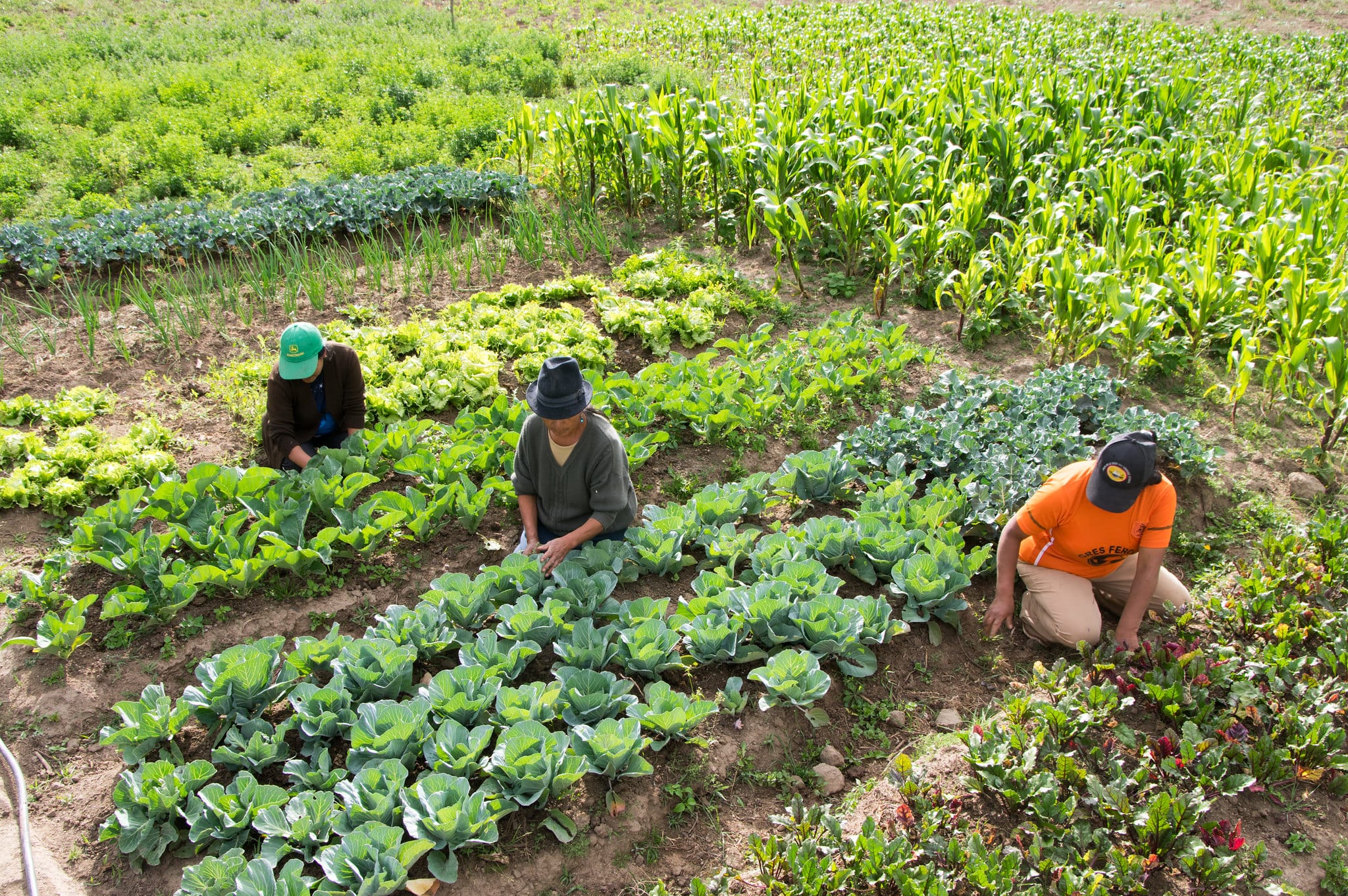Agroecology
Agroecology is at the heart of what we do
AVSF works with communities of small farmers to identify, test, adapt and approve effective agroecological practices. We are also committed to creating the right conditions for the transformation of agrifood systems, which is needed in order to drive the agroecological transitions.
Agrarian systems are in crisis
To meet the food needs of their growing populations and in response to sometimes questionable choices in terms of agricultural specialisation, many countries have gradually opted for agricultural intensification based on intensive use of polluting synthetic inputs and ecosystem artificialisation.
The consequences are now clear: environmental degradation, decline in soil fertility, loss of agricultural and wild biodiversity, risks to human health, etc.
The main victims are farming families, who are prisoners to an agricultural model that they do not have the means to support. They are struggling to feed themselves and to earn a decent living from what they produce, just as another major challenge is plaguing the agricultural sector: climate change.
More than 700 million people on the planet still suffer from hunger, and 80% of them live in rural areas.
Agroecological transitions are urgently needed
To help overcome food insecurity and poverty among farming families, AVSF and its partners work tirelessly to defend the agroecological transition. This transition aims to boost the productivity of crop and livestock farms in order to achieve food and economic sovereignty by protecting ecosystem resources. These farms are more resilient to climate shocks, economic shocks and health risks.
Agroecology intensively harnesses each ecosystem’s natural potential (sun, nitrogen, biomass, etc.) and the knowledge of farmers, while reducing dependence on synthetic external inputs.
The agroecological transition, as promoted by AVSF, is a complex process. The idea is not to apply just one agroecological model, but rather to work with farmers to adapt and create new proposals that are tailored to the particularities and context of each territory.

AVSF’s four pillars
Agroecological practices are based on the traditional knowledge of local farmers but also draw on recent scientific and technical innovations that are tested and approved with farmers’ organisations: companion planting and crop rotation, biological pest control, use of approved traditional veterinary practices, mixed crop and livestock farming, composting, agroforestry practices, etc.
AVSF’s guiding principles: harmonious use of the cycles and flows of natural resources to boost crop and livestock productivity, a desire to improve food and economic sovereignty, and promotion of practices used by small crop and livestock farmers.
Certain conditions are required for the sustainable development of agroecology. Access to land, water, loans, seeds, local veterinary services and all basic tools and infrastructure is essential for production. For processing and marketing harvests, access to suitable certification systems and to information on markets and prices is required so that farmers and their organisations can position themselves in transparent and lucrative value chains at local and international level.
Lastly, the agroecological transitions need to be coordinated at different scales. Agroecological practices need to be adapted to suit the particularities of each plot, farm or territory. At policy level, they require coordination between farmers’ organisations, communities, private actors at local and international level, and states to develop public policies in favour of family farming and these much-needed transitions.



